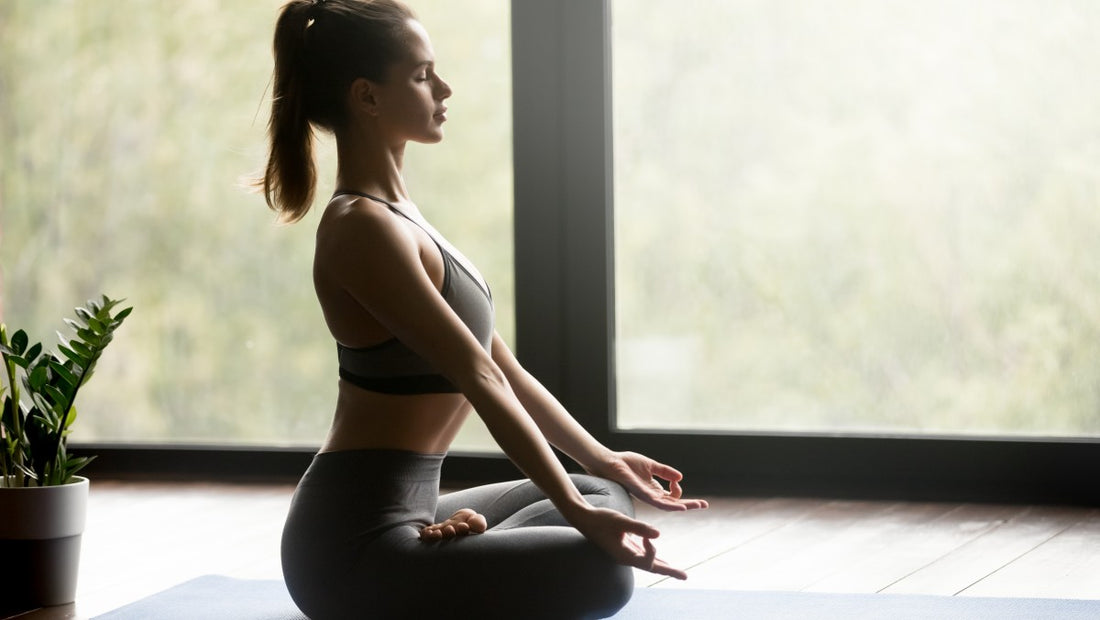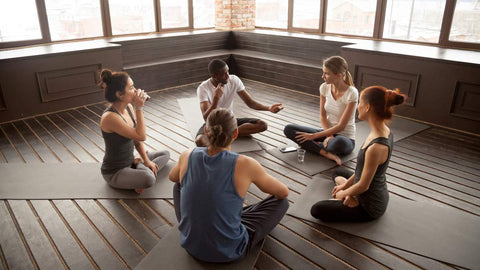
Beginner's Guide for Meditation
Share
Meditation is gradually coming into our view, may it be on the TV screen or in our daily life, it seems like more and more people are getting into meditation. You may also be wondering, what exactly is meditation? Why is it so popular? The truth is that meditation is not something esoteric, and when many people mention it, they associate it with monks and feel as if it is somehow religious in nature. It's not mysterious - it's just a way for us to stop and stay calm for a while. In a busy world, it allows us to pause, breathe and reset.
Benefits of Meditation
Meditation is actually very scientific, and many studies have proven that it can bring us many benefits. For example, it can help us release stress, sleep better, and be more productive. Everyone can meditate and everyone can benefit from it. By releasing tension in the body, meditation can help us release buried worries in the mind, relieve anxiety, stress, and low moods, and can even help you get a deeper, more restful sleep. Meditation can also bring about a sense of calm that allows us to respond to life events in a measured way, rather than reacting to our emotions. If you are a beginner, you can start to meditate in the following steps.
Learn to meditate
1. Find a quiet place
A quiet place is a prerequisite for starting meditation, and it is best if you have your own practice room. If you don't have your own studio, you can find other quiet places, such as a park at 6 am, a yoga studio, a grassy area, etc. This will ensure that you will be able to meditate in a quiet place. Quiet places will ensure that you are not disturbed by other people when you meditate.
2. Discover the right posture for meditation
Finding the right and comfortable meditation posture is very important for beginners. When you start to meditate, you may feel uncomfortable in the lotus sitting posture. That's okay, we have many postures to choose from. The first pose is the Quarter Lotus, which is a classic cross-legged pose. This pose is good for lifting the hips so that the back doesn't twist. The second pose is the Burmese position- placing your feet on the floor in front of your pelvis. This is a simple position that is comfortable if you are flexible enough to place your knees on the floor naturally. Or you can just sit on a chair, don't be ashamed of it. Always sit away from the back of the chair and place your feet firmly on the floor, aligned with your hips and knees. As long as the body posture makes you feel comfortable.
3. Reasonable expectations
When you first start practicing meditation, try to use simpler methods. Don't be so intentional that you think you will experience the benefits of meditation in a short period of time. Only after a long period of meditation insist will we get its benefits. Some people think that after they start meditating, their mind can be immediately calmed. Some people believe that their realm can be transcended and that they can open their third eye and see things beyond nature.
4. Reasonable time
Beginners often struggle with how long to sit in meditation. But no one is saying that beginners should force themselves to sit for hours on end. In fact, many meditation gurus suggest that you don't need to spend too long when you first start practicing and that 10 minutes would be a reasonable amount of time.
5. Find the meditation group or community and join them
Find a club, organization, or organization that also enjoys meditation and join them. You'll need their help when you've been trying for a while and find that you can't keep going. Meditating with a friend or family member will keep you going longer.

6. Keep focus
Most people can't keep their thoughts focused when they first start meditating. After 3 minutes, their minds start to wander. When you realize that you are starting to wander, you need to let go of the distractions and start again. Lack of concentration is quite normal and it is something that almost everyone encounters. Don't get frustrated and learn to adjust yourself gradually. Meditation is not about letting your thoughts radiate or thinking about nothing. Proper meditation requires us to focus on the present moment, on our heart and on our true thoughts.
Meditation is such a simple, yet complex thing. The most important thing is to stick to it, from just sticking to 5 minutes a day, 10 minutes a day, to half an hour a day. Keep doing it, keep feeling it, and you will be able to enjoy the benefits of meditation.
